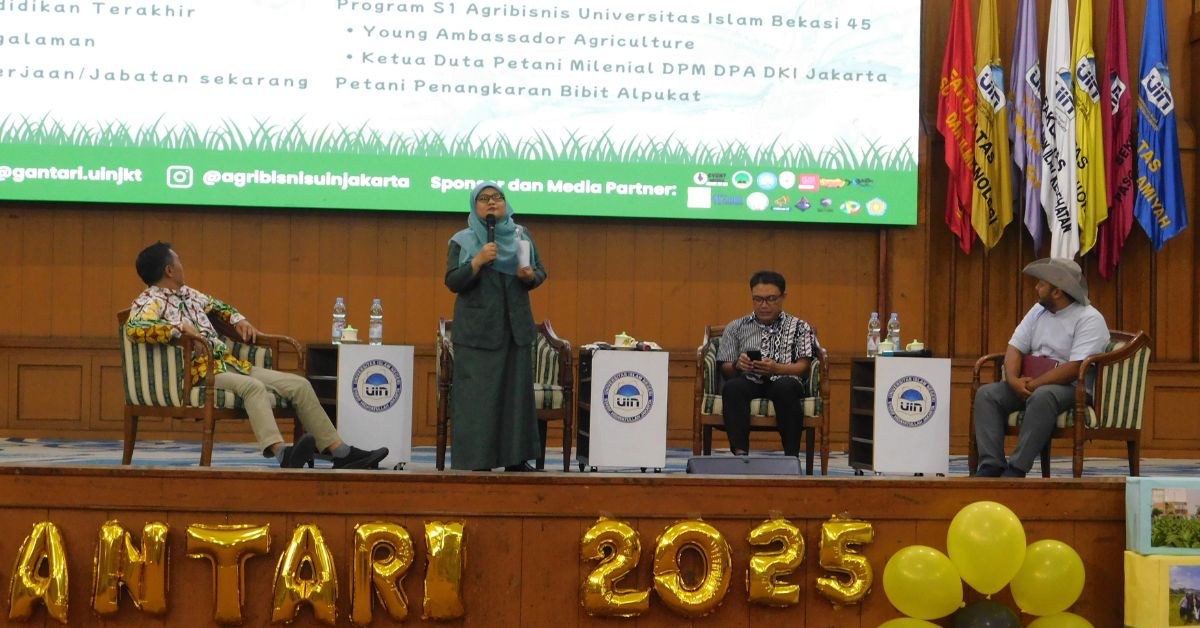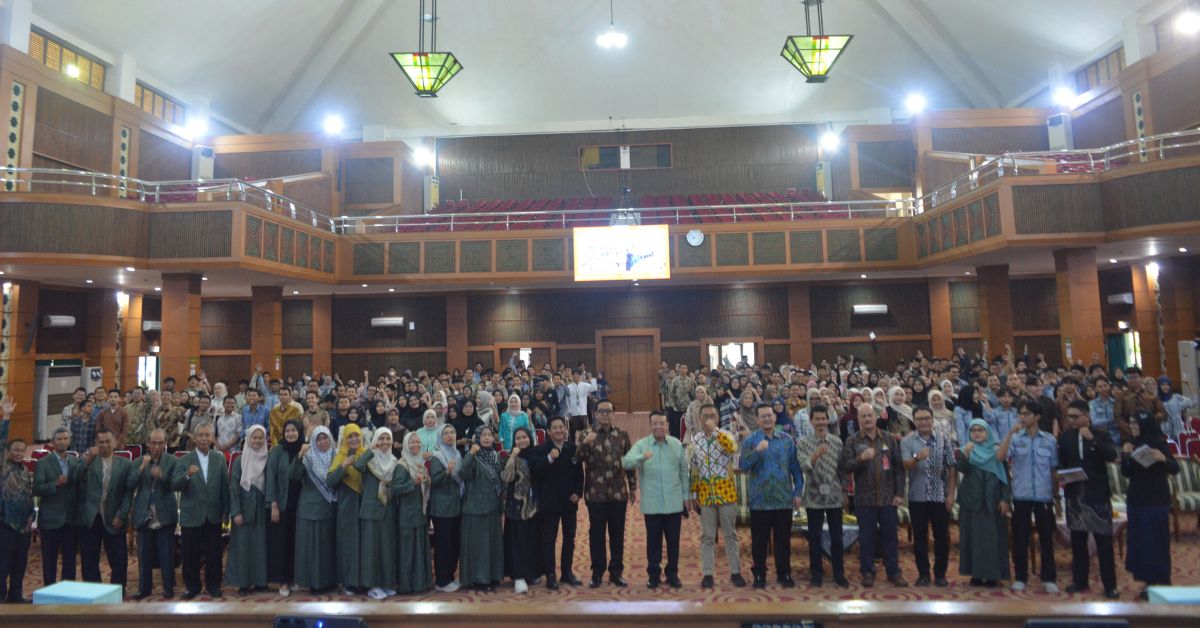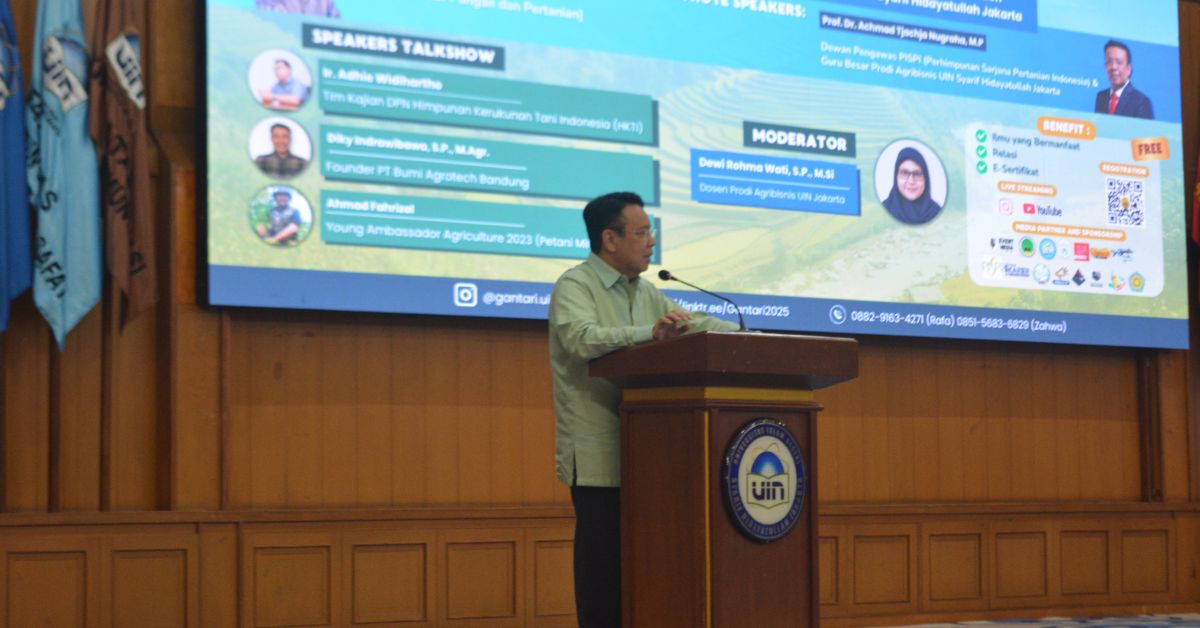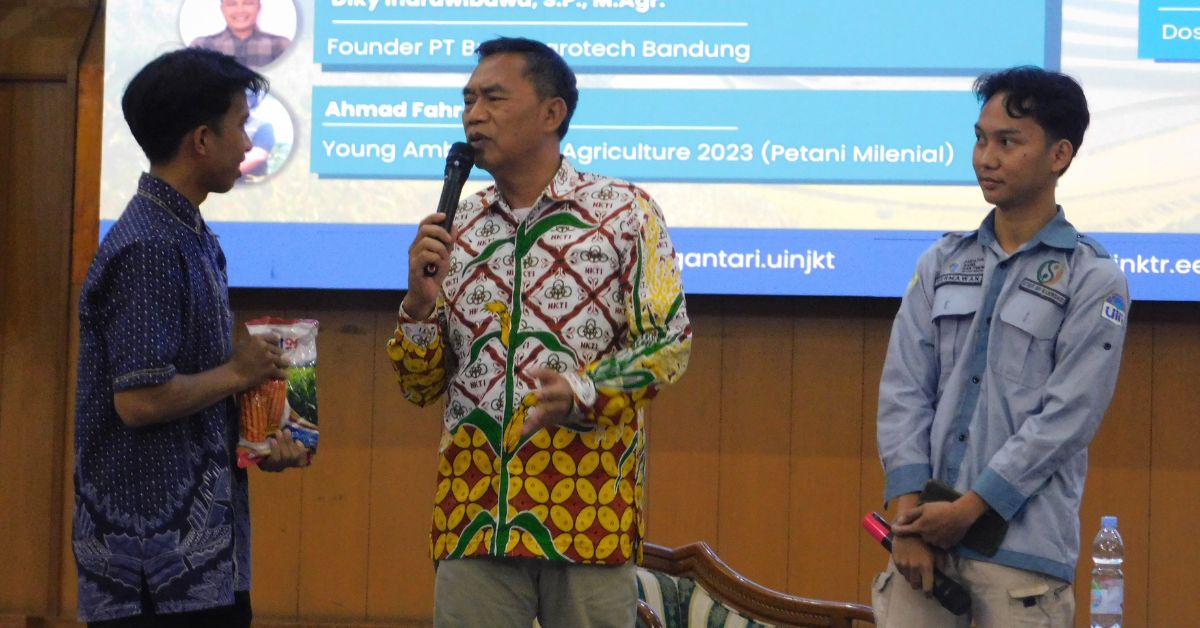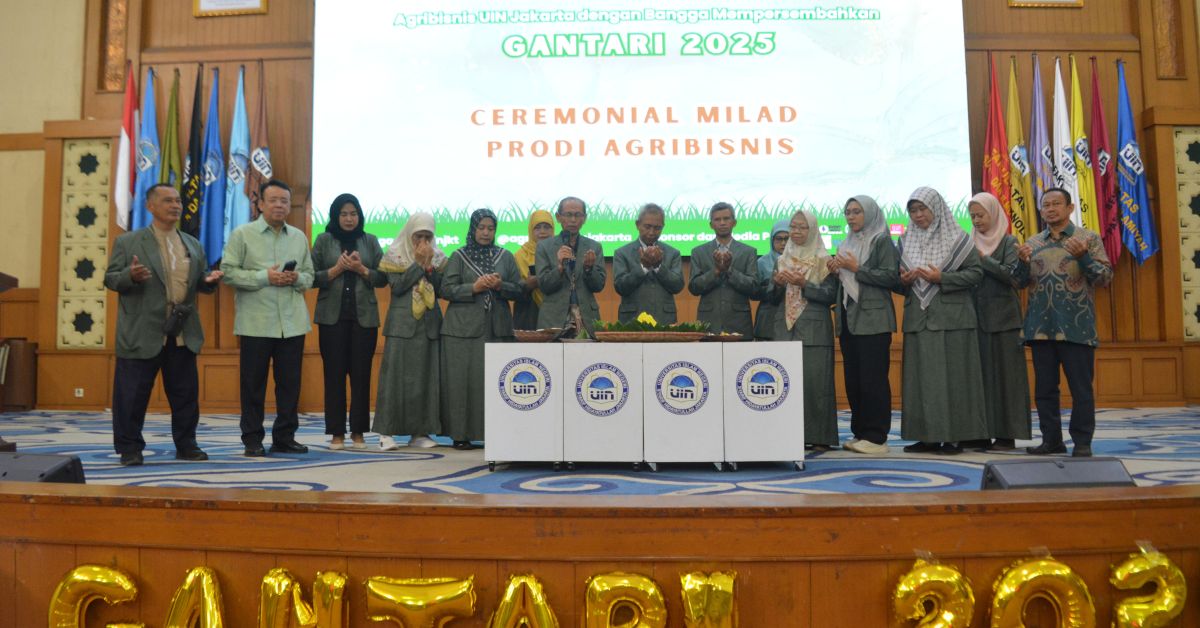GANTARI (Inspirational Farmers' Event) National Seminar 2025: Encouraging the Strategic Role of the Younger Generation in Food Self-Sufficiency
Jakarta, September 25, 2025 – The Student Association of Agribusiness (HMJ Agribusiness) at UIN Syarif Hidayatullah Jakarta successfully held the 13th National Seminar GANTARI (Gebyar Ajang Tani Inspiratif) 2025 to commemorate the 65th National Farmers’ Day.
The event, themed “The Strategic Role of Young Generations in Achieving Food Self-Sufficiency Toward a Golden Indonesia,” took place at the Harun Nasution Auditorium and was attended by experts, academics, and practitioners in agriculture and food security.
Among the keynote figures were Dr. Jarot Indarto, SP, MT, MSc, Ph.D. (Director of Food and Agriculture Directorate, Bappenas); Prof. Achmad Tjachja Nugraha, M.P., PIA., CFrA., CACP (Supervisory Board of PISPI and Professor of Agribusiness, UIN Jakarta); Ir. Yeppi Suherman, MM (Head of Food Security Office, South Tangerang City); Ir. Adhie Widiharto (Research Team of DPN HKTI); Diky Indrawibawa, S.P., M.Agr. (Founder of PT Bumi Agrotech Bandung); and Ahmad Fahrizal (Millennial Farmer).
The seminar was divided into several sessions, including keynote speeches by Dr. Jarot Indarto and Prof. Achmad Tjachja Nugraha, followed by a talk show featuring Adhie Widiharto, Diky Indrawibawa, and Ahmad Fahrizal, moderated by Dewi Rohmawati, S.P., M.Si., lecturer of Agribusiness at UIN Jakarta.
National Food Security Challenges
In his address, Dr. Jarot Indarto highlighted Indonesia’s ongoing food security challenges. Data shows that in 2012, around 20 countries suffered from severe food insufficiency, affecting 139.8 million people. Although Indonesia has shown progress in improving its food security index, several regions still face food shortages, and agricultural development remains uneven. Major issues include a 1.1% annual decline in rice production and the fact that 89.5% of agricultural land is unsustainable, alongside heavy reliance on imports of rice, meat, milk, and salt.
To overcome these challenges, the government prioritizes programs to boost horticultural productivity, develop local food sources, and modernize food systems through digital transformation. The goal is to increase the national food security index to 82 by 2029 and achieve 54.45 million tons of rice production. The use of digital data and remote sensing technologies is viewed as essential for precision agriculture and production efficiency.
Social Capital as the Key to Reducing Rural Poverty
Prof. Achmad Tjachja Nugraha explained that despite significant budget increases for agricultural development from 2015 to 2024, rural poverty reduction has stagnated. Rural poverty rates remain twice as high as urban levels, exacerbated by urban migration, education gaps, and reliance on the informal sector.
He emphasized that “Social capital — values, norms, trust, and informal networks among individuals — enables cooperation for shared goals.” Prof. Tjachja recommended strengthening local leadership, investing in education and social infrastructure, and integrating social capital into national development policy. “Without trust and collaboration among farmers, aid programs often fail to sustain,” he stated.
Regional Food Security Initiatives
Representing South Tangerang City, Ir. Yeppi Suherman, MM discussed regional challenges, such as limited agricultural land due to urban expansion and dependence on external food supplies. However, he noted that South Tangerang holds great potential as a food hub for Banten and Greater Jakarta, through high-tech urban farming initiatives aligned with local development goals and the second pillar of the Asta Cita program focused on food resilience.
The Role of Youth in Modern Agriculture
The talk show emphasized the crucial role of young people in advancing modern agriculture. Ir. Adhie Widiharto encouraged youth to move beyond the “poor farmer” stereotype by embracing technology, joining organizations, and building strong business networks. He also highlighted the need for comprehensive market analysis and education to support sustainable agribusiness ventures.
Diky Indrawibawa, S.P., M.Agr. added that agricultural modernization must involve direct field engagement and an integrated upstream-to-downstream system. He pointed out the urgent issue of farmer regeneration, as many older farmers discourage their children from continuing the profession — a call to action for the younger generation to step forward.
Meanwhile, Ahmad Fahrizal underscored the importance of personal branding and public speaking skills for young farmers. He encouraged youth to view farming as an enjoyable and meaningful pursuit while using social media to share their experiences and inspire others.
Inspiring Change for Indonesia’s Agricultural Future
The GANTARI 2025 National Seminar reaffirmed that the future of Indonesia’s food security relies on strategic policymaking, strengthened social capital, technological adoption, and, above all, the active participation of the younger generation. The event served as a platform for collaboration between academia, government, and practitioners to foster innovation, sustainability, and food sovereignty toward Indonesia Emas 2045.
